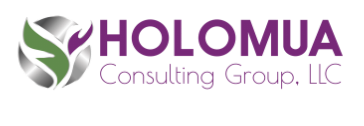| When it comes to 8(a) certification, in short, yes you should be concerned if your company earns more than 70% of its revenue from a single client or source (commercial). As part of the 8(a) application, applicants must provide a list of the company's contracts over the previous 12 months, including the following information: award date, customer name, description of work, dollar value and applicable NAICS code. In some cases, during the back and forth process with the SBA that is inherent in the 8(a) application process, the SBA will request contract information for the previous 3 years. |
Economic Dependence
Initially established through decisions issued by the SBA's Office of Hearings and Appeals (OHA), the 70 Percent Rule was codified in regulation last summer. Located at 13 CFR 121.103(f), the rule says:
SBA may presume an identity of interest based upon economic dependence if the concern in question derived 70% or more of its receipts from another concern over the previous three fiscal years. This presumption may be rebutted by a showing that despite contractual relations with another concern, the concern at issue is not solely dependent on that other concern, such as where the concern has been in business for a short amount of time and has only been able to secure a limited number of contracts.
In essence, if the 70 Percent Rule applies, and the applicant firm is economically dependent upon another firm, SBA will apply a presumption that the two firms are affiliated. The impact of this presumption, if not adequately rebutted by the applicant, could mean one of two things, both of which would negatively effect an 8(a) application. First, the revenues and/or number of employees for the two firms may be combined for purposes of determining whether the applicant meets the size standard which corresponds to its primary NAICS code. If the client firm is a large business, a finding of affiliation could render the applicant business to be other than small and thus not eligible for the 8(a) program.
Second, and often more problematic is that the SBA may find: (1) that the client firm has the ability to negatively control the applicant by exerting financial leverage over the applicant firm; and/or (2) that the economic dependence negatively impacts the applicant firm's potential for success because an applicant that relies on one client is unstable and risky, given the high probability that should that one client leave, the applicant may be unable to continue its operations.
Now, if the 70 Percent Rule applies, that means the SBA will presume economic dependence between the firms. It is then up to the applicant firm to rebut the presumption by providing evidence that the applicant is not solely dependent upon the client firm. To date, the only arguments SBA has accepted in order to rebut the presumption are:
- The applicant is a startup and has only been able to secure a limited number of contracts;
- The applicant's operations recently started up again after a period of dormancy and it has only been able to secure a limited number of contracts; and
- As of the date of the size determination, the applicant is no longer economically dependent upon the client firm (i.e., the applicant just received another large contract or several smaller contracts which would reduce the level of dependency to below 70 percent).
A Court of Federal Claims decision issued on August 2 may impact whether the SBA will accept other arguments/factors to rebut the 70 Percent Rule, but we will have to wait and see on that, as the SBA should now be in the process of reconsidering its prior decision in that case, pursuant to the Court's order.
Bottom Line
If you are considering applying for the 8(a) program now or in the future, we encourage you to take a careful look at your contracts over the past few years and determine whether the 70% rule may be of concern for your application. If it is in fact a concern and: (1) your firm is not a "startup"; (2) your firm did not recently resume operations after a period of dormancy; (3) your firm has not recently obtained contracts/revenue from other sources that would reduce the level of dependency to below 70 percent; and/or (4) there is no other compelling explanation for the economic dependence on the single client firm, we would recommend against submitting an 8(a) application at this time. Rather, we would recommend that you focus your energy on putting together a business development strategy for pursuing and securing new sources of revenue.
The bottom line is that contrary to what you may hear, not every issue can be overcome when it comes to the 8(a) application process, which is why the success rate for 8(a) certification is so low. Absent one of the circumstances described above, the 70 Percent Rule will rule you out almost every time (no pun intended).
If you have questions about the 70 Percent Rule, 8(a) eligibility requirements or the application process, feel free to contact us at info@holomuaconsulting.com or by scheduling an initial consultation with us.





